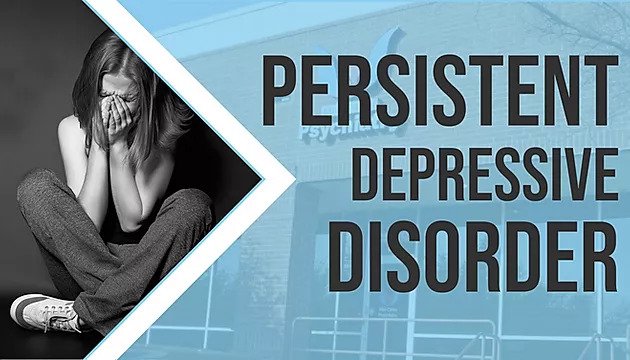Persistent Depressive Disorder (Dysthymia) represents a consolidation of the DSM – IV defined chronic major depressive disorder and dysthymic disorder (commonly referred to as “Dysthymia”,)
A person with dysthymia describe their mood as sad or “down in the dumps,” but dysthymia is more than simply feeling sad.
Dysthymia is a chronic form of depression that can cause people to lose interest in normal daily activities, have low self-esteem and an overall feeling of inadequacy, feelings of hopelessness, and difficulty with productivity.
People with dysthymia often find it hard to be “upbeat”, even during good times. They might be perceived as gloomy, pessimistic, or a complainer.
Causes of dysthymia
The exact cause of dysthymia is unknown, but as with major depressive disorder it may include more than one cause, including some of the following:
- Brain chemistry – a number of brain regions have been implicated in dysthymia.
- Genetics – having a first degree relative with a depressive disorder increases the risk.
- Environmental/life events – loss of a parent during childhood, traumatic events such as loss, financial problems, and high levels of stress can trigger dysthymia.
- Personality traits that include negativity – low self-esteem, pessimistic, self-critical, dependent upon others
- History of other mental disorders.
Symptoms of dysthymia
The essential feature of dysthymia is a depressed mood that occurs for most of the day, for more days or not, for at least two years for adults or one year for children and adolescents.
Symptoms of dysthymia can include:
- Poor appetite or overeating
- Loss of interest in daily activities
- Insomnia or hypersomnia
- Low energy or fatigue
- Low self-esteem, self-criticism, or feeling incapable
- Poor concentration or difficulty making decisions
- Feelings of hopelessness
- Decreased activity and/or productivity
- Social isolation
- Irritability or anger
- Sadness or feeling down
- Feelings of guilt
- In children, depressed mood and irritability are often primary symptoms.
Treatment of dysthymia
A great first step is to get a physical evaluation from your primary care physician to rule out any potential medical causes of the symptoms. The two main treatments for dysthymia include medication and psychotherapy, but your treatment plan will depend upon factors such as the severity of the symptoms, your preferences, your ability to tolerate medications, and previous mental health treatment. For children and adolescents, psychotherapy is the first recommendation.
Should you or anyone you know suffer from this psychiatric disorder, please seek help from a behavioral health professional or contact Mid Cities Psychiatry today.

